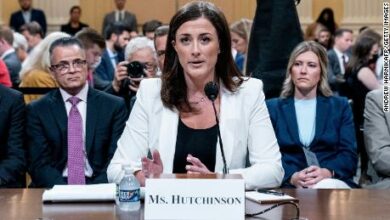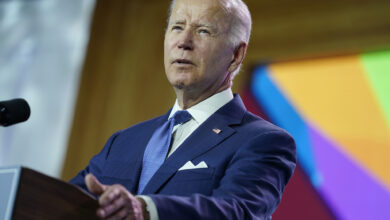After nearly three months of a fierce parliamentary race, a new conflict may flare up soon between the Islamist majority and the secular minority over the make-up of the body in charge of drafting Egypt's first post-revolution constitution.
With the conclusion of the Shura Council elections, Parliament's two chambers are bound to elect the 100-member constituent assembly that will draft the new constitution. Lawmakers have yet to discuss a bill laying out eligibility conditions for the constitution's potential architects and the assembly's internal regulations.
Meanwhile, different parties have already begun disclosing their views on the matter. While all groups speak adamantly about the necessity to reach a consensus over the composition of the assembly, rifts over three specific issues are emerging.
Disputes already have surfaced over the lawmakers' share of the assembly's 100 seats, how members will be elected and how the assembly's decisions will come into effect.
While the Muslim Brotherhood's Freedom and Justice Party seems inclined to allocate half the assembly's seats to MPs, secular parties are set to push for lowering the lawmakers' quota as much as possible. Earlier this week, the liberal Wafd party announced that MPs should hold no more than a quarter of the assembly’s seats.
“This 25 percent should be distributed among political parties to reflect the weight of each one of them in Parliament,” Ahmed Ezz al-Arab, Wafd’s vice president, told Egypt Independent.
If the quota of lawmakers rises over 25 percent, “a particular political trend might become in control,” warned Arab, in an oblique reference to Islamists, who hold nearly 70 percent of the People’s Assembly's seats and have already achieved a similarly sweeping victory in the Shura Council elections.
He argued that the constitution should not be written by a parliamentary majority that may change in the future, but by different political and social groups. “The constitution is set to serve for years to come. It is not like forming a cabinet,” said Arab, whose party holds almost 7.4 percent of seats in the People’s Assembly.
Since Hosni Mubarak's ouster, ideological feuds between Islamists and secularists have intensified. While Islamists accuse liberals and leftists of seeking to impose secular norms on Egyptian society, secularists hold that the Brothers and Salafis’ plan is to use their parliamentary weight to establish a religious state.
Wafd's proposal on the constituent assembly does not resonate with the FJP, which stands as the largest bloc in Parliament. So far the party, which holds more than 40 percent of the People's Assembly's seats, has not put forward a full-fledged bill proposal, but its leaders have unveiled some of the party's inclinations. In a phone interview, Essam al-Erian, an FJP lawmaker, defended his party's suggestion to allocate half of constituent assembly seats to MPs, insisting it is not too high.
"This Parliament is elected by millions of people, hence it has the right to be represented with 50 percent [of the constituent assembly's seats]," said Erian, the FJP vice president.
Sobhi Saleh, another FJP parliamentarian, dismissed Wafd's proposal as "unpractical."
"It reduces [nearly] 700 parliamentarians into only 25," argued Saleh. "What if I have 30 lawmakers who are fit [for this role]? Shall I exclude five because Wafd wants that?"
According to the military-drafted temporary constitution, only elected members of both of Parliament's houses are eligible to choose the constituent assembly. Yet, the same constitutional declaration does not specify eligibility conditions or mention whether MPs could run for the assembly. However, many political parties have agreed that elected lawmakers should have the right to join the assembly.
The People's Assembly has 498 elected and 10 military-appointed members. As for the Shura Council, 180 of its 270 members were elected in the recent poll. The new council shall convene on 28 February, and the remaining 90 members will be appointed by the next president after he is elected in June.
Not only Wafd opposes the FJP's 50 percent quota for lawmakers, the Egyptian Social Democratic Party holds reservations.
Mohamed Naeem, a member of the ESDP high board, told Egypt Independent that the party does not have a comprehensive bill, but presented the general traits of the liberal party’s proposal.
The ESDP holds that lawmakers shall not run for more than 35 percent of the seats, according to Naeem, whose party holds 22 out of the People's Assembly's 508 seats.
Unlike Wafd, the EDSP’s wish to lower the quota is not driven by fears from any Islamist hegemony, claimed the ESDP leader.
Parliament does not necessarily represent all segments of society. For example, it does not represent the military and the police who are “components of the state,” and should contribute to the process of writing the constitution, argued Naeem.
Hence, if MPs grab half the assembly's seats, "the share for other segments of society will be very small," he warned.
He went on, explaining further details of his party's blueprint. The ESDP believes that legal and constitutional experts should be allocated between 10 and 15 percent of the seats, he said. As for the remaining seats, they should be held by representatives from different social and political groups, including professional associations, civil society organizations, trade unions, commercial chambers, religious institutions, the military establishment, police, high courts and writers, among other groups.
In the meantime, the ESDP proposes that each of constituent assembly's members should be elected by at least two-thirds of lawmakers. The party suggests legal experts should be elected by a 75-percent majority.
“We stress that these experts be elected by the highest level of consensus because they will be the ones who actually conduct the drafting of the constitution,” said Naeem.
The EDSP also holds that the constituent assembly shall approve each constitutional article by a two-thirds majority before the whole constitution is put to a public referendum. To Naeem, the simple majority of 50 percent plus 1 is not enough to secure a national consensus over the content of the constitution.
"We will present [this proposal] to the FJP in one week at the latest," said Naeem adding that the FJP politicians have already approached his party for this purpose
FJP leaders have repeatedly said that they seek to discuss the matter with different parties in order to reach a consensus.
Nevertheless, the FJP may vehemently oppose this proposal, not only for the 35-percent ceiling on lawmakers' representation, but also for the requirement of a two-thirds majority to elect the assembly's members and to approve the constitution.
"Any elections and any voting anywhere in the world are held by the normal [50 percent plus 1] majority, unless there is a legal provision saying otherwise. In our case, there is no such provision," said Saleh, referring to the constitutional declaration that remains silent on the size of the majority required.
"Are we going to invent a new way of elections?" wondered Saleh.
Earlier this week, FJP President Mohamed Morsy announced that his party will unveil a complete proposal within days. Whether the leading Islamist majority and the minority could meet midway remains to be seen.




